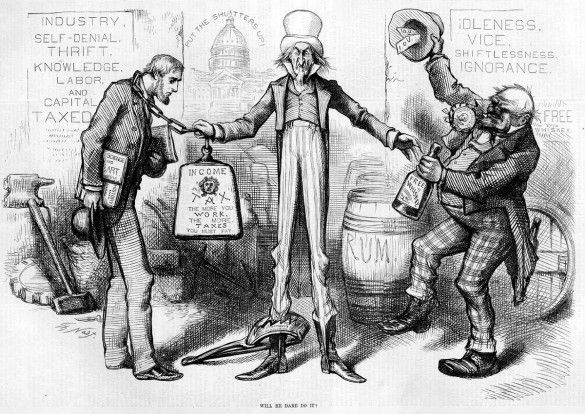What’s New For The 2011 Federal Tax Return?

Telling Tips is a series of articles from local experts to help you save money, make better decisions and plan for a better future.
TELLING TIPS: The ho-ho of the Christmas season became ho-hum when it came to Washington and your tax return for 2011. Here are a few of this year’s exciting items:
1. Tax Return Due Date: The due date of your return for this year is April 17, which gives you three more days to procrastinate. Why three? First, this is a leap year, meaning that February has an extra day; Second, April 15 is a Sunday, so you have through the next business day to file; and Third, Monday, April 16 is the Emancipation Day holiday in the District of Columbia, so all governmental workers in D.C. are off, which includes the IRS. Oh yea, and of course, those other tireless workaholics, known as Congress. Also note that you have this extra time to make your IRA contribution for 2011.
2. First-Time Homebuyer Credit: If you are one those who took the interest free loan in 2008 to buy a house, the First-Time Homebuyer Credit, and now have to pay it back, there is a new line (Line 59b) on which to report it. The original form 5405 is no longer required if you still own and use the house as your main residence.
3. The Making Work Pay Credit: This reduced your income tax by up to $800, and expired at the end of 2010. The reduction in your Social Security tax from 6.2 percent to 4.2 percent effectively replaced it, and more if you earn $20,000 or more.
4. Are you an investor? The form you will receive around February 15 (and which many times gets revised once or twice by March 15-31), the 1099-B, has been revised so that your broker can report the cost of the stock to you and the IRS. Schedule D [PDF] has a new look, and an add-on to the Schedule D, Capital Gains and Losses, is Form 8949 [PDF], where these transactions are detailed.
5. Overseas Accounts: Did you have an account, or signature authority, overseas? The IRS is really getting serious about these, so don’t forget to fill out Schedule B, Interest and Ordinary Dividends, Part III, Foreign Accounts and Trusts. Remember, you are signing your tax return “under penalties of perjury.”Form TD F 90-22.1, Report of Foreign Bank and Financial Accounts [PDF] may also need to be filed, as well as Form 8938 [PDF].
6. The new W-2 reporting. Although only optional for this year, many larger employers are reporting a new code, DD, in box 12. This is the amount for employer-sponsored health care coverage. It helps the IRS determine if the new healthcare insurance mandates are being followed. You are not being taxed on this, yet.
7. Residential Energy Credit: This popular credit for the purchase of certain energy-saving improvements, including windows, exterior doors and skylights, and insulation, was reduced to 10 percent of the cost for 2011, down from 30 percent for 2009 and 2010, and is limited to $500 ($200 for windows; the $500 is down from an overall $1,500). In order to claim this credit, you must first subtract any energy credits you claimed on Form 5695 [PDF] on your 2006, 2007, 2009, and 2010 tax returns. This credit may now be helpful only to those who make energy-saving improvements for the first time in 2011 (Whatever happened to 2008? If Congress made laws easy to understand, we might have another ‘tea party.’)
8. Standard Mileage Rate:
- Your Business Mileage: For 2011, 51 cents per mile from January through June, and 55.5 Cents per mile from July through December.
- Medical & Moving Mileage: 19 cents per mile from January through June, and 23.5 cents per mile from July through December.
- Charity Mileage: 14 cents per mile for the entire year.
9. Schedule C, Profit Or Loss From Business: There is a new line, 1a, the amount received from merchant cards and third party networks. For 2011 this line does not need to be completed — it’s more like show, but don’t tell.
10. HSAs, MSAs, Medical Expenses (Health Savings Accounts And Medical Savings Accounts): If you withdraw your money, and don’t use the funds for which the plan was designed, you’ll have a 20 percent penalty, up from the 2010 HAS penalty of 10 percent and MSA penalty of 15 percent. Also note that medicines and drugs are only deductible if prescribed by a doctor. Insulin is still okay.
11. Earned Income Credit: If you use a paid preparer, Form 8867, Paid Preparer’s Earned Income Credit Checklist [PDF], must now be filed with your tax return. Previously, paid preparers were required to complete the form and just retain it. Due to all the false claims, the IRS is making the tax preparer responsible for the accuracy, to the tune of $500 for each false form. By the way, almost 20 percent of those eligible fail to claim this credit, so check your return carefully.
There are some other minor changes, but this covers most of us. And now, are you ready for the sequel — ‘What’s New For The 2011 STATE Return?’
Have a Good Week.
(Just a thought: The trouble with our foreign policy is that the enemy nations are living beyond our means.)
Joseph Reisman, of Joseph S. Reisman & Associates, has been serving tax prep and business accounting expertise from his Coney Island Avenue office for more than 25 years. Check out the firm’s website.




